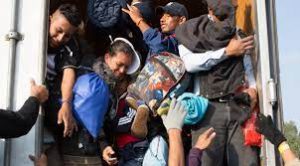Climate-Induced Migration And Modern Slavery:

International Institute for Environment and Development (IIED) and Anti-Slavery International released a report named Climate-Induced Migration and Modern Slavery.
- IIED is a policy and action research organisation promoting sustainable development and linking local priorities to global challenges. It is based in London, UK.
- Anti-Slavery International is the world’s oldest international human rights organisation, founded in 1839. It is the only British charity exclusively working to eliminate all forms of slavery.
Increasing Inequality:
- Climate change is devastating the planet, leading to intensifying global inequality as well as disputes over land, water and scarce resources.
Increased Migration:
- People are being driven to migrate within and across borders in search of resources and income.
- As many as 55 million people were internally displaced within their countries due to extreme weather events in 2020.
- The World Bank estimates that, by 2050, the impact of the climate crisis, such as poor crop yields, a lack of water and rising sea levels, will force more than 216 million people across six regions, including sub-Saharan Africa, south Asia and Latin America, from their homes (Groundswell Report).
Modern Slavery:
- Climate change-induced extreme weather events put women, children and minorities at risk of modern slavery and human trafficking.
- The phenomenon is on the rise in India, among other countries.
- 40.3 million people are living under slavery in the world.
- Drivers of vulnerability to modern slavery are complex and impacted by many layers of risk. pWhile several socio-economic, political, cultural and institutional risks shape vulnerability, they are increasingly considered to be made worse by climate change impacts and environmental degradation.




